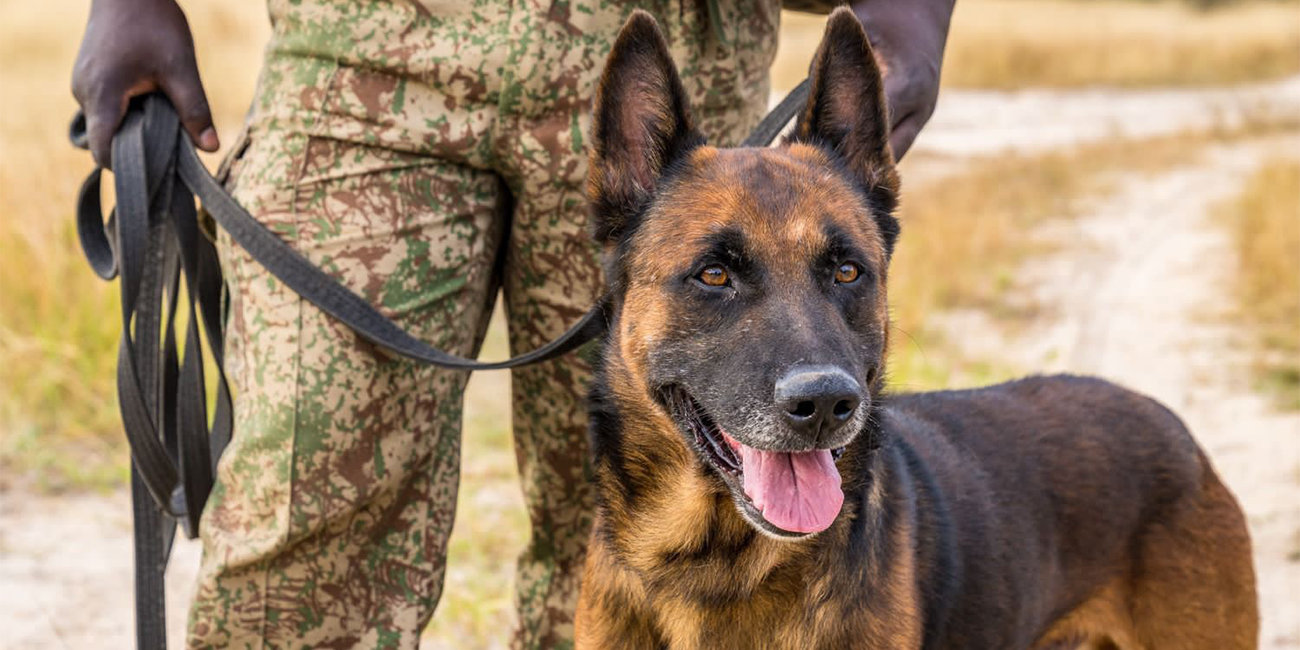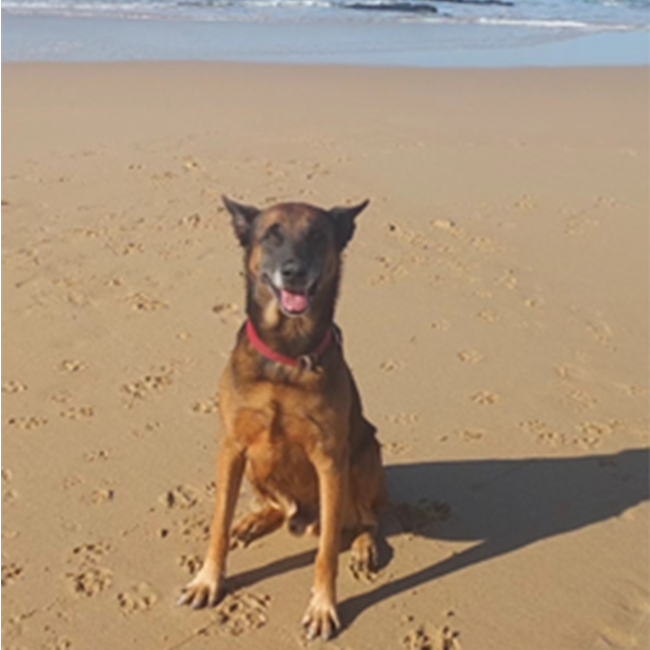Conservation Canines in their twilight years

Wildlife crime continues to plague South Africa and the need for diverse approaches to effectively combat these crimes is clear. Rhino poaching (being the illegal killing of rhino and the harvesting of their horn) has been particularly devasting, with thousands of rhinos having been brutally killed in South Africa. A recent assessment of various antipoaching interventions in the Greater Kruger area highlights this, as well as the resources and capacity needed to effectively respond to syndicated wildlife crime.
This assessment considered eleven anti-poaching interventions, including the value and impact of both detection and tracking dogs. Detection dogs are placed at points of entry and exist in a certain area and are specifically trained to sniff out specimens like rhino horn or arms and ammunition. Tracking dogs are specifically trained to follow scent trails and are used to track poachers. This assessment found that “tracking dogs were very successful at performing their function of following tracks and leading to significant arrests.”
Puk was tracking dog, working in this landscape until his retirement last year. Working with his handler Morris, Puk had an incredible career in anti-poaching. After years of hard (but important) work, Puk is now enjoying the benefits of retirement. Adopted last year by Paul and Barbara Dore, Puk is settling into retirement as a pampered pet and recently had his first beach holiday!

Photo credit: Ashleigh Dore

Watching Puk transition from working dog to pet has been wonderful, we are very grateful to Paul and Barbara for opening their home and hearts to him and giving him the retirement he deserves!
If you would like more information on how you can support conservation canines or give a home to another one of our retired conservation canines, please contact Shadi at shadih@ewt.org.za.
You can access the report detailing the assessment here.
For more information on Puk and Morris watch this video.
